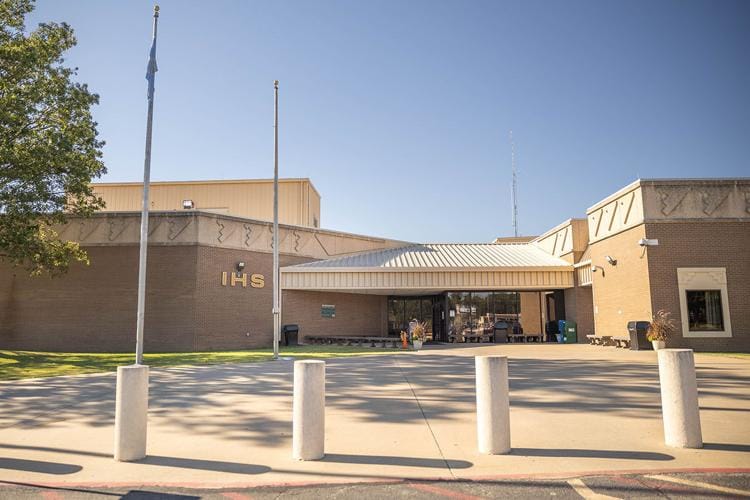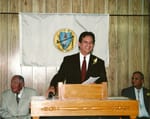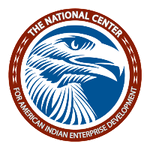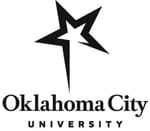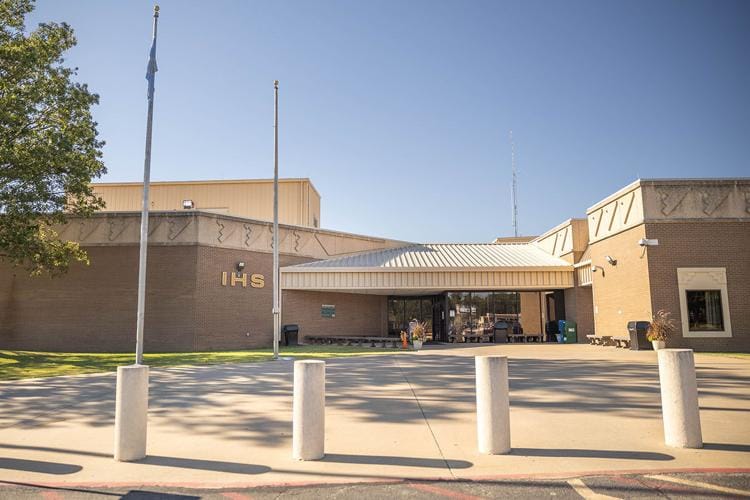
By Emmet Jamieson, Claremore Daily Progress
The Cherokee Nation says it will assume control of Claremore Indian Hospital Oct. 1, with plans to build a new facility by 2027.
The federal Indian Health Service presently runs the hospital, the only federally-operated Native health care facility in the Cherokee Nation reservation. The hospital will drop its inpatient services Oct. 1 and stay open under Cherokee Nation leadership until the new facility is completed.
A spokesperson from the Indian Health Service said Tuesday the agency is still developing a statement.
Kevin Easley Jr., deputy speaker of the Cherokee Nation Tribal Council and Claremore's tribal councilor, said the tribe is pouring $255.5 million into building a new hospital for Native Americans in Claremore.
"This is, quite frankly, the largest investment that Cherokee Nation will have ever made in Claremore and Rogers County," Easley said. "It is transformational."
Sixteen Oklahoma tribes, including both of Oklahoma's Cherokee bands, make up the hospital's advisory board.
Cara Cowan Watts was Claremore's tribal councilor from 2003 to 2015 and formerly the advisory board chair. She said the pending takeover and loss of inpatient services have many employees and patients feeling anxious.
"Even with the new building, they're not building us a new hospital," Cowan Watts said. "They're just building us a clinic with an ER on it."
All current employees at Claremore Indian Hospital will have to reapply for their positions.
Stephen Jones, CEO of Cherokee Nation Health Services, told employees in a Monday memo they would get first access to job postings and priority in hiring. Cowan Watts said several employees forwarded the memo to her, and she published its full text Tuesday on Cherokee 411, her media website.
Cowan Watts — who lost to Principal Chief Chuck Hoskin Jr. in a 2023 bid for the tribe's top leadership role — said the Cherokee Nation is staging a "hostile takeover" of Claremore Indian Hospital without buy-in from the other 15 tribes on the advisory board.
The United Keetoowah Band of Cherokee Indians opposes the takeover. Its tribal council on April 5 approved a resolution, stating the UKB hadn't authorized the transfer of the Claremore Indian Hospital to the Cherokee Nation. The UKB and Cherokee Nation enjoy equal federal recognition as tribal nations.
Why does the Cherokee Nation want to take over Claremore Indian Hospital?
The Cherokee Nation has had designs on Claremore Indian Hospital for a while. In his State of the Nation address last September, Hoskin announced the tribe's intention to assume control.
Hoskin — who was born at Claremore Indian Hospital in 1975 — wrote in his "Chief Chat" column that month that the hospital is a place of special significance to Cherokees staffed by hard-working, wonderful people. He said the Cherokee Nation wants to take it over because the Indian Health Service "has never adequately delivered health care" and is funded "well below the needs of American Indian patients."
Deputy Principal Chief Bryan Warner reiterated this when he spoke on the state of the nation in Claremore May 13. He said then that the tribe aims to provide state-of-the-art health care in Claremore in the image of its sprawling Tahlequah campus.
Both the public and Claremore Indian Hospital employees alike first found out from a Tuesday press release that the tribe plans to construct a new hospital in Claremore. According to the press release, bringing the current building up to the Cherokee Nation's standards would cost more than $100 million.
In reply to comments on a Wednesday post, the Cherokee Nation's Facebook account deemed the takeover a rescue mission.
"Their own financials show them outrunning their budget within two to three years," the tribe's account wrote. "Putting that in the context of their facility condition, low-volume services and the broader reorganization of IHS means that a more painful change was coming with or without our involvement."
Easley is carrying Hoskin and Warner's bill to fund the Claremore medical campus. He said only about three or four patients use the hospital's inpatient services each day, and the tribe is working with local providers to offer inpatient services for tribal patients at other area facilities.
"There's going to be some growing pains, obviously, because we have to keep the current facility running in the meantime," Easley said. "But as far as the services that are going to be provided to Claremore, it's going to remain the same or better as what's being provided."
What will happen to the hospital's staff and services?
Kathryn Martin, a midwife who has worked at Claremore Indian Hospital since August 2023, said losing inpatient services will lower the hospital's standard of pregnancy and childbirth care. She said her department's inpatient load fluctuates greatly; sometimes only one patient stays the night, but other time,s nearly every room is full.
Martin said cutting inpatient will mean there aren't enough jobs to go around.
"Because they're closing inpatient services, they're not going to need a team of four nurse midwives and a family practice doc to manage labor and delivery," Martin said. "They're certainly not going to need that many providers in addition to a women's health nurse practitioner and two OB-GYNS to staff an outpatient clinic, so there is no equivalent for them to transfer us to."
According to the Tuesday press release, employees who choose to leave or have no equivalent position to apply for can reap federal benefits, like severance packages.
"Claremore has a talented and dedicated workforce and we are excited to hire as many interested applicants as possible to begin their new careers as Cherokee Nation employees," Jones said.
The tribe isn't offering employees Intergovernmental Personnel Act agreements, as it did in 2008 when it took over W.W. Hastings Hospital in Tahlequah. IPAs allow the temporary assignment of federal employees to other government entities. The tribe wrote in a Tuesday Facebook post that IHS' terms for IPAs would unfairly shift costs and risks to the Cherokee Nation.
Martin, who previously worked for the Cherokee Nation at Hastings before getting a job with IHS, isn't reapplying. Her employment will lapse Oct. 1. She said she and other employees feel disrespected and left in the dark.
"I don't want to speak negatively about Cherokee Nation as a whole, but I just feel like they could have been more transparent," Martin said. "They could have been honest, because now my family that I support, that's my responsibility, and I have very limited options now. What am I supposed to do?"
Cowan Watts said Martin isn't the only employee who has told her they're not coming back. She said one employee told her the Cherokee Nation would pay her $40,000 less per year than she is making now in the same role.
"Do you think these people are going to want to come back and work for these folks?" Cowan Watts said. "... I don't blame them because these trained medical professionals have given their lives to Indian Country to be treated this way, and they're going to walk away and go find somebody that values them."
The tribe countered this in a comment under its Tuesday post on IPA agreements.
"No one should assume their pay is going to be reduced," the tribe's account wrote. "Our Human Resources team is evaluating existing positions at Claremore and matching them to Cherokee Nation’s positions. We are finding that the total payroll may actually increase compared to the current state at Claremore."



